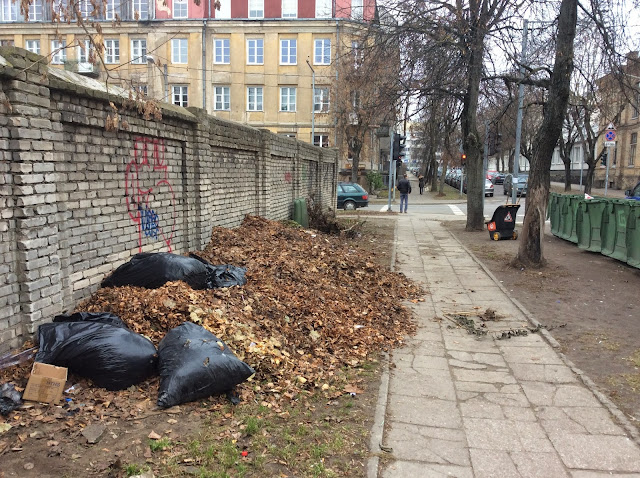Vilniaus bankrotas arba kaip pakeisti situaciją
Ant nosies gruodis, o mieste pilna nenurinktų nukritusių rudeninių lapų. Matyt nėra pinigų ir tie, kam priklauso gatves valyti, neatlieka savo pareigų. Bankrotas kaip Detroite?
Ir šovė į galvą mintis – jei miesto (arba šalies) prioritetas Nr.1 taptų "Švara" (su visom išplaukiančio papildomom sąvokom – "higiena", "sveikata" ir t.t), kurį, kad ir kas benutiktų, trūks-plyš vykdytume, tai galėtų duoti netikėtų kitų pozityvių šalutinių pasekmių. Kokių?
"On a blustery October day in 1987, a herd of prominent Wall Street investors and stock analysts gathered in the ballroom of a posh Manhattan hotel. They were there to meet the new CEO of the Aluminum Company of America—or Alcoa, as it was known—a corporation that, for nearly a century, had manufactured everything from the foil that wraps Hershey’s Kisses and the metal in Coca-Cola cans to the bolts that hold satellites together. The new CEO would be a former government bureaucrat named Paul O’Neill. “I want to talk to you about worker safety,” he said. „I intend to make Alcoa the safest company in America. I intend to go for zero injuries.”
There was no talk of “using alignment to achieve a win-win synergistic market advantage”, “synergy,” “rightsizing,” and “co-opetition”—at which point everyone could return to their offices, reassured that capitalism was safe for another day. Safety? Was this a joke? One investor in the audience knew that O’Neill had been in Washington, D.C., during the sixties. „Guy must have done a lot of drugs“, he thought.
But within a year of O’Neill’s speech, Alcoa’s profits would hit a record high. By the time O’Neill retired in 2000, the company’s annual net income was five times larger than before he arrived, and its market capitalization had risen by $27 billion.
At the top of O’Neill’s list he wrote down “SAFETY” and set an audacious goal: zero injuries. Not zero factory injuries. Zero injuries, period. That would be his commitment no matter how much it cost.
O’Neill’s safety plan, in effect, was modeled on the habit loop. He identified a simple cue: an employee injury. He instituted an automatic routine: Any time someone was injured, the unit president had to report it to O’Neill within twenty-four hours and present a plan for making sure the injury never happened again. And there was a reward: The only people who got promoted were those who embraced the system.
Unit presidents were busy people. To contact O’Neill within 24 hours of an injury, they needed to hear about an accident from their vice presidents as soon as it happened. So vice presidents needed to be in constant communication with floor managers. And floor managers needed to get workers to raise warnings as soon as they saw a problem and keep a list of suggestions nearby, so that when the vice president asked for a plan, there was an idea box already full of possibilities. To make all of that happen, each unit had to build new communication systems that made it easier for the lowliest worker to get an idea to the loftiest executive, as fast as possible. Almost everything about the company’s rigid hierarchy had to change to accommodate O’Neill’s safety program. He was building new corporate habits.
As Alcoa’s safety patterns shifted, other aspects of the company started changing with startling speed, as well. Rules that unions had spent decades opposing—such as measuring the productivity of individual workers—were suddenly embraced, because such measurements helped everyone figure out when part of the manufacturing process was getting out of whack, posing a safety risk. Policies that managers had long resisted—such as giving workers autonomy to shut down a production line when the pace became overwhelming—were now welcomed, because that was the best way to stop injuries before they occurred. The company shifted so much that some employees found safety habits spilling into other parts of their lives."
("The Power of Habit" ("Įpročio galia"), Charles Duhigg ("Baltos lankos", 2012)
Plius ir miesto (šalies) įvaizdis gerokai pagerėtų. Bet...suprantu, kad čia ne Singapūras ir mintis užgęsta...





Komentarai